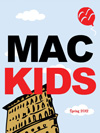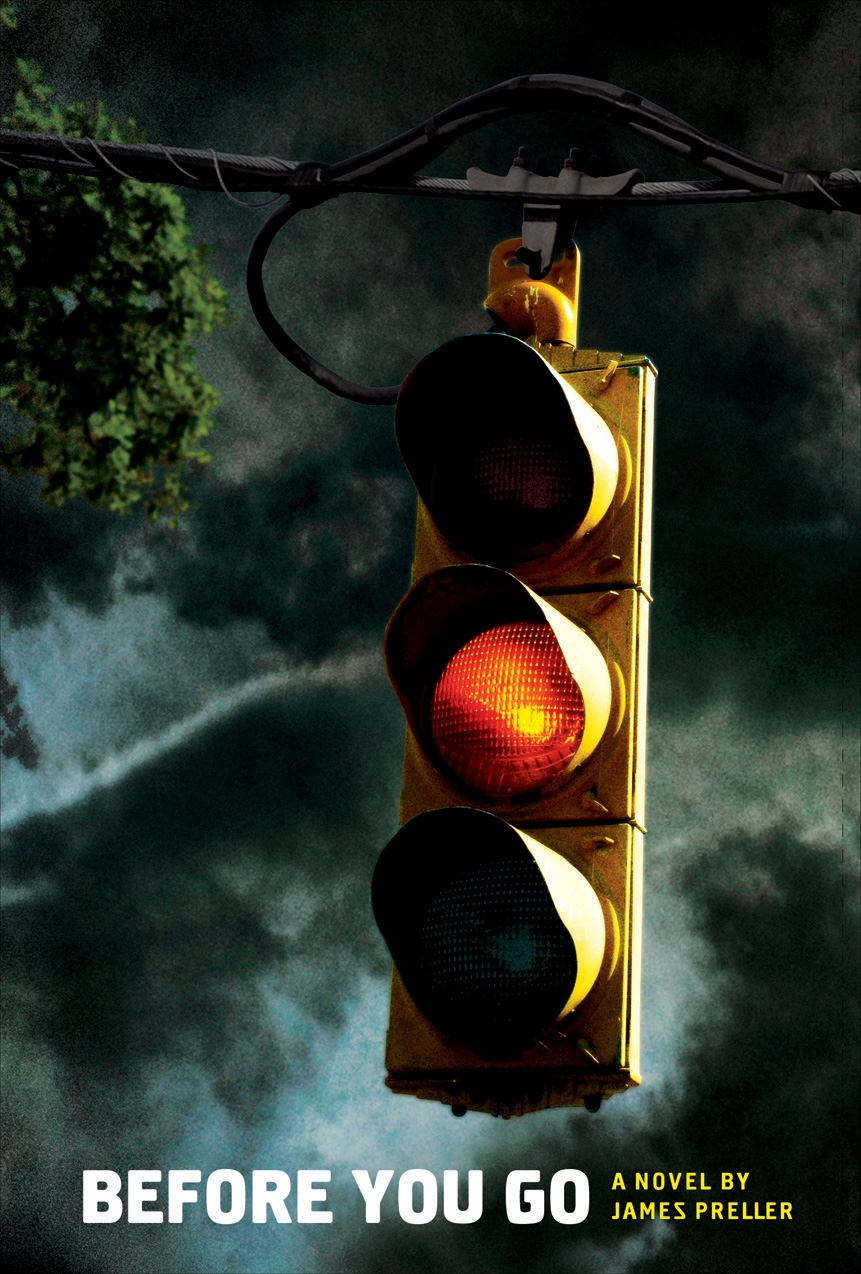I can’t wait until I’m an old man sitting in a rocking chair on my front porch, complaining about how the world’s gone plum crazy. That’s my default position: I’m naturally a cranky old man, even from when I was in diapers, my body just hasn’t caught up with my world view. Yet. The problem is that my essential attitude, “we’re all going to hell in a hand basket,” is so much more forgivable in an octogenarian with a bag of soggy Ritz crackers on his lap.
Anyway, the world is changing fast. Mac Kids — whoever or whatever they are, or that is (it’s so hard to keep track of publishers these days) — has come out with its Spring 2012 catalog in downloadable form. As I understand it, there’s no print version. It’s kind of sad, in some ways, since I hold a long affection for the object, but in other ways, very cool and democratic. Because you (yes, even mere you) can click right here and have access to the whole thing on your desktop.
There’s a bunch of cats available, but the one I’m referring to looks like this . . .
(I wonder, as an aside, if this new delivery system will be a case of reaching more people but less powerfully? I guess that’s the publishing question, measuring the trade off.)
Once you download the catalog, you’ll find that my hotly-awaited YA debut, BEFORE YOU GO, gets the two-page treatment, including a nifty little Q & A with the author. See pages 38-39. You’ll also get a first peak at new books by Philip C. Stead, Amy Schwartz, Lewis Buzbee, Rachel Vail, S.A. Bodeen, Kate Banks, Phillip Hoose, George Ella Lyon, Ralph Fletcher, Alexandra Day, and many more. Seriously, it’ll make your head spin. So many books, so much talent and creativity. It’s an honor to be a small part of it.
Here’s the Q & A:
What was your inspiration for the story? What scene came to you first?
I imagined a fatal car crash on a lonely road. I have sharp memories of driving around with my friends at that age, a little bit of Springsteen’s “Darkness on the Edge of Town,” that feeling, the boredom and the rebellion. So the book starts with a quick, dramatic scene, then skips back six weeks into the past. Readers then meet the four teenage characters that were in the accident. The interesting thing is, that was my exact experience as a writer. I was like, Who are these kids? What’s their story? I had to write the book to find out.
People keep saying teen boys don’t read. True, in your opinion? Who is the perfect reader this novel?
A year before I began the book, the owner of a local bookstore made an offhand comment to me, “You should write a teen relationship story told from a boy’s point of view. Everything in YA these days centers on girls — there’s nothing realistic for boys,” she complained. So, yeah, after kicking it around for a while, I took up that challenge. I hope this is a story that will appeal to both boy and girl readers.
There’s a slight melancholy aspect to Jude. He suffered a loss in the past.
Yes, Jude is grappling with ghosts from some years before. A sister who drowned. In a way, this book’s arc is about our witnessing Jude open up again after he initially presented himself as somewhat shutdown, closed. Jude was half-asleep, and this is the summer of his awakening. For me, I’m the youngest of four brothers and two sisters. I’ve seen two of my brothers pass away, and I gave the eulogy for my father. When our family gathers now, it feels to me like a ship that’s listing to the side; we never sit in the water quite right; we’ll never be whole again. I think that’s how Jude feels, too.
In the story, Jude is a runner. Are you?
I slog, achy and complaining, Jude flies. I built up the running them during the first revision, it was there in the beginning and naturally grew into a larger metaphor, I guess. Jude’s father runs; so does Jude. But sometimes in life you’ve just got to spread your feet and take root. For Jude, that might mean going to the end of the earth — the ocean’s edge — and making a standing, and choosing life.
Lastly, I want to offer my open-armed welcome to all the debut authors and illustrators included here: Gina Rosati, Anna Banks, Emmy Laybourne, Mar’ce Merrell, Christine Tricarico, Ken Geist, Lynne Kelly, Jennifer Bosworth, Sarah Wylie, Leigh Bardugo, and anyone else I might have missed. What a thrill, what a great moment for you and your proud family. Congratulations. Enjoy it. Have fun. And don’t hesitate to shoot me an email if you have any questions, or comments, or whatever. But no, in advance, I have no idea how to read one of these small-print contracts. I just sign the damn things, cross my fingers, and hope they don’t take away my house. (Still missing that first born, a bit. He was kind of cute. But, Live & Learn — that’s what I say!)
I mean:
Good luck!




